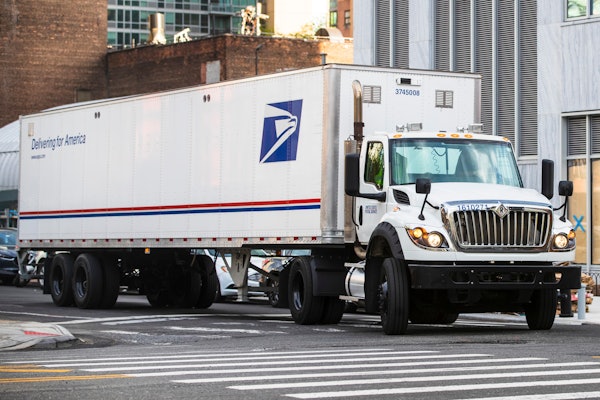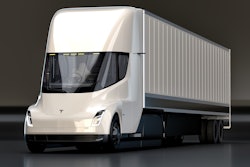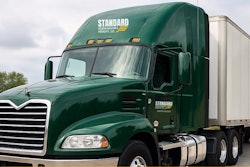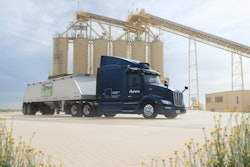DistTech, a Newbury, Ohio-based carrier that provides dedicated contract carriage of bulk liquid commodities, has developed a technology-based solution to incorporate numerous shippers into shared vessel space within multi-compartment tank trailers.
In an increasingly global market for the sourcing of materials, shippers of bulk chemicals are facing increased pressure from end users to offer specialized delivery services, and to get their products to the market in a more economically, safe, and expedited manner, says John Rakoczy, chief operating officer for DistTech. As a result, shippers are looking for new alternatives to shipping liquid in totes, drums or small loads on tankers.
Over the past year, Rakoczy says DistTech has developed a new solution to this challenge, a first-of-its kind service in the trucking industry called LTL Bulk by DistTech.
DistTech is a Newbury, Ohio-based carrier that provides dedicated contract carriage of bulk liquid commodities. DistTech developed the LTL Bulk solution as a way to incorporate numerous shippers into shared vessel space within multi-compartment tank trailers. These trailers are capable of safely carrying and distributing products through segregated delivery systems. Currently, DistTech operates 295 multi-compartment tankers, Rakoczy says.
The solution works by DistTech building a consortium of new and current DistTech customers to share vessel space. Each shipper pays for only their portion of vessel space, mirroring the LTL van model. As an example, two companies send 1,000 gallons from Seattle to Portland. They both cut their shipment costs in half by sharing vessel space.
“This is especially beneficial during down cycles or down periods of the year,” Rakoczy says. “In the off season, gallons tend to shrink, and the cost per gallon goes up.”
In order to successfully market, plan and execute this product offering, DistTech fosters relationship building within this segment of its customer base, allowing for an open exchange of ideas between carrier and the variety of shippers served. Although shippers’ delivery times must be hit, shippers can work together to make pickup times more flexible to share vessel space in a dedicated environment, Rakoczy says.
Geographies, business segment and technology are instrumental to the success of the program, Rakoczy says. Participants can’t be competing shippers, and products cannot be dangerously incompatible. The shippers must also have common area pickup points.
To plan and execute the LTL Bulk model, DistTech uses several cutting-edge technologies. Its trailers use segregated hydraulic-driven pumps with electronic flow meters. These technologies enable DistTech to track exactly how much liquid is loaded and unloaded by volume. At each delivery, drivers send a proof of delivery receipt to the customer and to DistTech through the company’s Qualcomm satellite communications system. Qualcomm integrates with the flow meters to capture the exact amount of liquid that is picked up and delivered electronically, by customer, enabling fast turnaround for customer billing, Rakoczy says.
To plan routes, DistTech developed its own proprietary “optimizer” for LTL Bulk shipments. The optimizer is used to minimize the miles per gallon of delivery for a group of customers. The optimizer interfaces with the company’s dispatch system from TMW Systems and a mapping and mileage system, PC Miler, from ALK Technologies to visualize route plans on a map.
“Because of (PC*Miler) we have visibility to all of the loads,” Rakoczy says. “We can create a phantom order and a phantom truck movement, usually about a week ahead,” he says. “You have to allow time for shippers to manufacture the product; otherwise you are planning a load that they didn’t make yet.”
Once a phantom order is created, DistTech presents the planned orders and routes to a set of customers. If they all agree, LTL Bulk delivery begins.
Currently, three customers are using the new LTL Bulk service, but Rakoczy expects the number to increase significantly as the company continues to identify opportunities through technology and collaboration with willing shippers.








